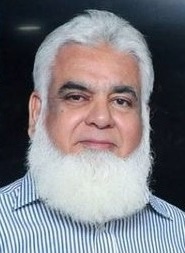Prof Asaad Javaid
In the recent decades, dentistry in Pakistan has made significant strides, earning recognition as a prestigious profession. However, this commendable progress is marred by the persistent threat of quackery, which undermines the credibility of the profession.
Dental quackery presents a significant threat to public health, with repercussions ranging from financial exploitation to serious harm. These unlicensed practitioners lack proper qualification and training, employing outdated or unsafe techniques. Patients may suffer from botched procedures, infections, or unnecessary treatments, leading to prolonged pain and suffering. They, driven mainly by personal gain, perform procedures that are not only unnecessary but also hazardous. The consequences of seeking treatment from quacks go beyond mere complications; they also contribute to the spread of deadly diseases like HIV/AIDS and hepatitis B and C, further burdening an already stressed economy.
An economic survey conducted by the Pakistan Bureau of Statistics highlights the dramatic shifts occurring in the dental sector. Back in 1970, only 384 dentists were officially registered with the Pakistan Medical Dental Council (PMDC), resulting in a concerning dentist-to-population ratio of 1:156,000. Recognizing the severity of the situation, the government largely ignored the presence of unqualified practitioners, particularly in rural and economically deprived urban areas. Today, the scene looks markedly different, with approximately 30,000 registered qualified dentists. This has led to a significant improvement in the dentist-population ratio, now standing at around 1:7800, which aligns with the recommendations set forth by the World Health Organization (WHO).
The growing number of qualified dentists emphasizes the urgent requirement for action against fraudulent clinical practices, considering the annual graduation of 3000 plus new dentists from the 48 institutions accredited by PMDC. These young dentists encounter difficulties stemming from inadequate support from federal, provincial, and local governments, as well as a significant scarcity of job prospects. Despite a 135% rise in the number of dentists in the last 12 years, employment opportunities have not expanded proportionately.
Many dentists who fail to secure suitable job positions turn to private practices. However, the widespread presence of quacks in both small and large urban centers present a formidable obstacle as the patients find it difficult to distinguish between a licensed dentist and a quack, leading to a lack of trust in the dental profession. The presence of unlicensed individuals tarnishes the reputation of dentistry as a whole, complicating the efforts of licensed dentists to build reputable practices.
The significance of the role of dental association cannot be overstated in raising awareness among both the public and government regarding the menace posed by quackery. The association should strategize and implement community outreach initiatives, workshops, and seminars aimed at increasing awareness regarding dental quackery. Collaborative efforts with local health authorities, educational institutions, community centers, and media platforms should be prioritized to enhance the effectiveness of these programs. The association ought to develop informative materials such as brochures, pamphlets, posters, and online resources to dispel misconceptions and shed light on deceitful dental practices.
The dental association should also collaborate closely with regulatory bodies and government agencies to push for more robust regulations and strict penalties against unauthorized practices. Regulatory bodies should conduct routine inspections and audits of dental facilities to ensure adherence to established standards, as well as create a centralized database of licensed dental professionals accessible to the public. Moreover, law enforcement agencies must impose stringent penalties on those engaging in unauthorized dental practice and streamline the legal procedures by prosecuting the dental quacks and ensuring that prompt and efficient legal measures are taken.
The writer is working as Dean, Faculty of Dentistry, Baqai Medical University, Karachi. He may be reached at: asaadjmirza@gmail.com.
Related Posts






Comments